Nkoli was an openly gay, anti-apartheid freedom fighter who spent four years in prison during the Delmas Treason Trial in the 1980s. He was unapologetically fierce in a time of struggle in South Africa, then a society in which both one’s race and sexual orientation wielded great, life-shaping power. Nkoli was at the forefront of the fight for social justice and equal rights for the LGBT+ community, not least of all by leading the charge in the organisation of South Africa’s first-ever Pride march. Despite his amazing legacy, Nkoli remains something of an unknown figure, which is precisely what the all-star production Nkoli: The Vogue Opera seeks to address.
Get tickets for this highly anticipated production, which runs from Thu, Nov 16 – Sun, Nov 19 at the Market Theatre here.
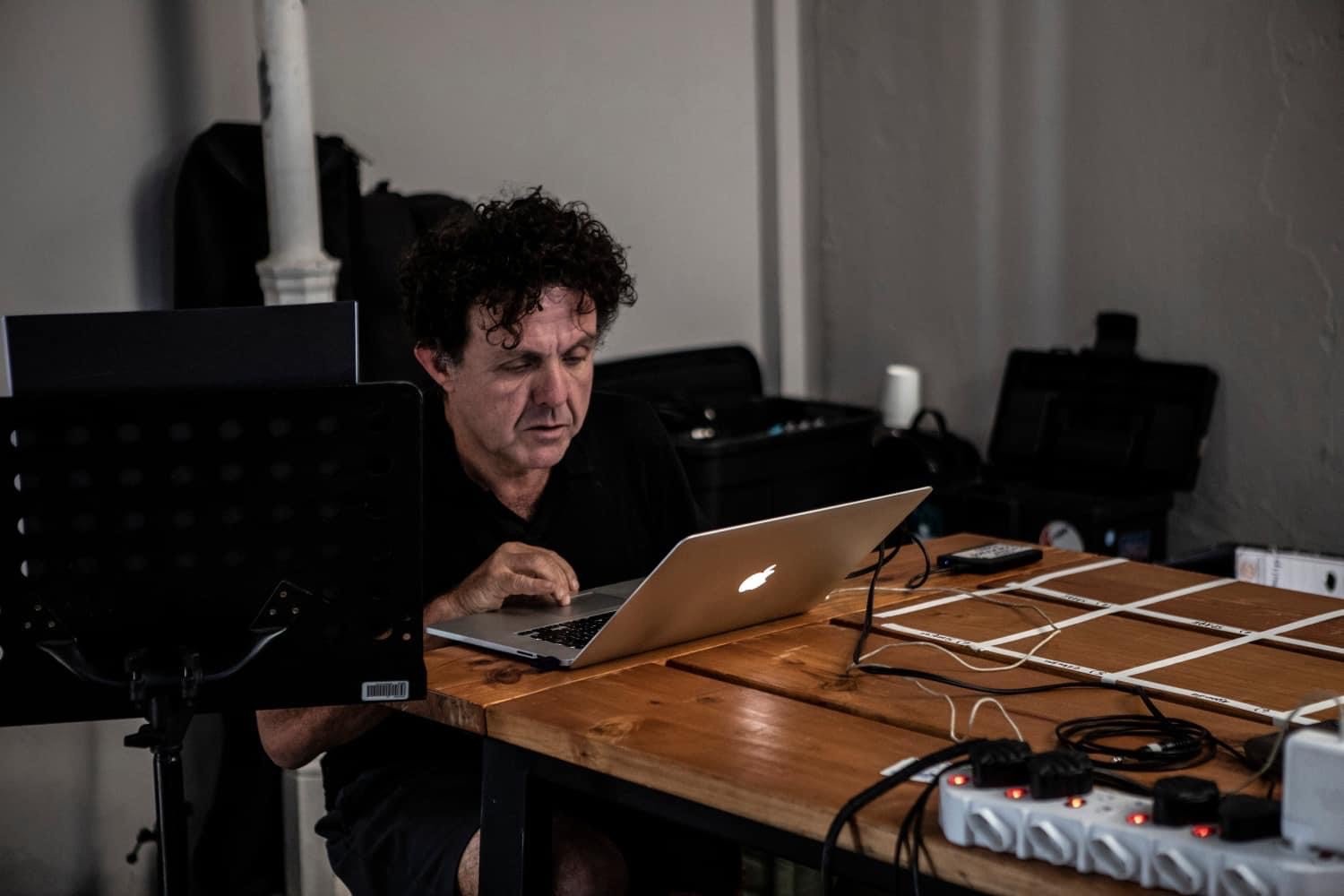
Back to Miller: a South African composer, producer and sound artist whose track record is wide-ranging and incredibly interesting. He has written the avant-garde score for Dada Masilo’s contemporary African take on the ballet Giselle and collaborated with William Kentridge over decades, including on the spectacular stage production The Head and the Load. Miller’s ear is discerning, no doubt, but he’s far from a purist, influenced by everything from minimal electronic sounds to classical compositions.
Four years in the making, Nkoli: The Vogue Opera is Miller’s latest project – a massive undertaking and revolutionary collaboration with queer rapper S’bo 'Gyre' Nene as co-lyricist and award-winning director (and Vogue Ball extraordinaire) Rikki Beadle-Blair. The production is an incredible collaboration with an immense cast that includes new, young and diverse talent, from fashion designers to singers, as well as long-time collaborators like Ann Masina, who has worked on projects with Miller and Kentridge over the past 25 years.
Based on the true stories of Nkoli and his compatriots, the production cements the legend of one of South Africa’s most unsung heroes. We caught up with Miller to hear what it took to bring Nkoli: The Vogue Opera to life.
When did you first encounter Simon Nkoli and what was it about him that sparked the idea for this production?
I had moved up to Johannesburg and went to hear Simon speak at a meeting of the Gay and Lesbian Organization of the Witwatersrand (GLOW). I later met him on the dance floor of the Skyline Bar in Hillbrow, one of the first gay and lesbian clubs in Johannesburg which welcomed black gay men and women.
“Simon’s life was an opera and he would be smiling up there, watching his life being turned into an opera.”
What music first came to mind?
Diana Ross’s I’m Coming Out mashed up with the famous aria Vissi d’arte from Puccini’s opera Tosca, sung by Maria Callas. Simon loved disco and listened to the top 20 hits on his radio which he had in his prison cell. But his comrade and close friend Dr Bev Ditsie told me that Simon behaved like his whole life was an opera!
Why is Nkoli's story important now?
Many young members of the LGBT+ community, not only in South Africa but all over Africa and the world, do not know of Simon’s story and his extraordinary legacy. Right now we are witnessing an alarming rise in hate crimes against the LGBT+ community and we have to continue to fight against homophobia and transphobia and call it out where we see it.
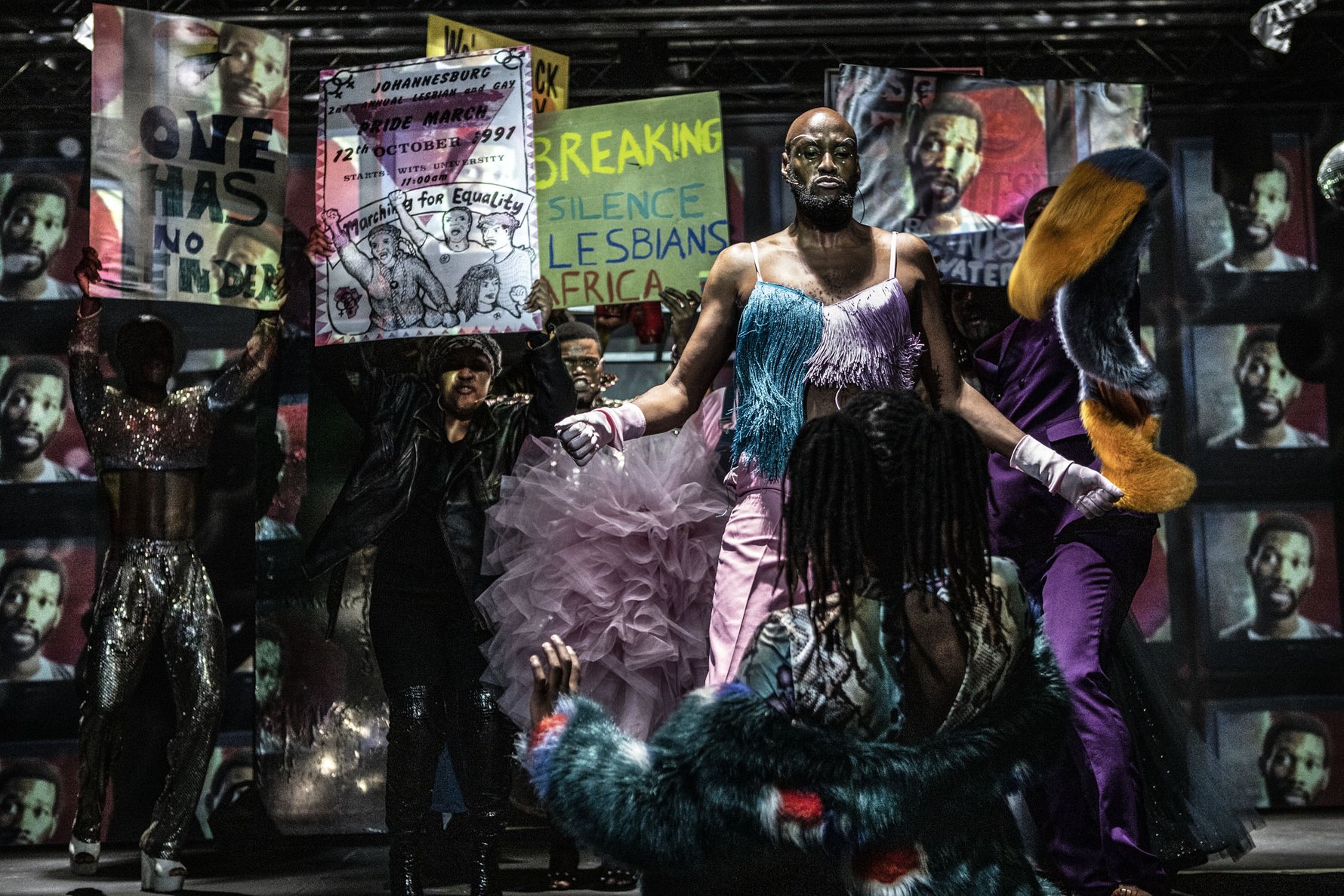
Tell us about the research process?
I worked with the film and television producer and script developer Harriet Perlman together with the queer activist and writer Welcome Lishivha. We interviewed many of Simon’s comrades and close friends and family including his mother Elizabeth Nkoli, [High Court Judge] Gcina Malindi, retired Constitutional Court Judge Edwin Cameron and Simon’s [former human rights] lawyer [Supreme Court of Appeal Judge] Caroline Heaton Nicholls. We also were given access to over 800 letters written by Simon while he was in prison by the Gay and Lesbian Archive (GALA).
Who was the first person you approached to be part of this project?
Dr Bev Ditsie. She said to me over a drink in Melville, “Simon’s life was an opera and he would be smiling up there, watching his life being turned into an opera.” I was quite shocked at how few young people from the LGBT+ community, and those coming out of the struggle days, knew who Simon Nkoli was. It was interesting because in some ways he was more celebrated overseas than here, both in the U.S. and in Europe. Only now is his story starting to be told and people are making projects about him.
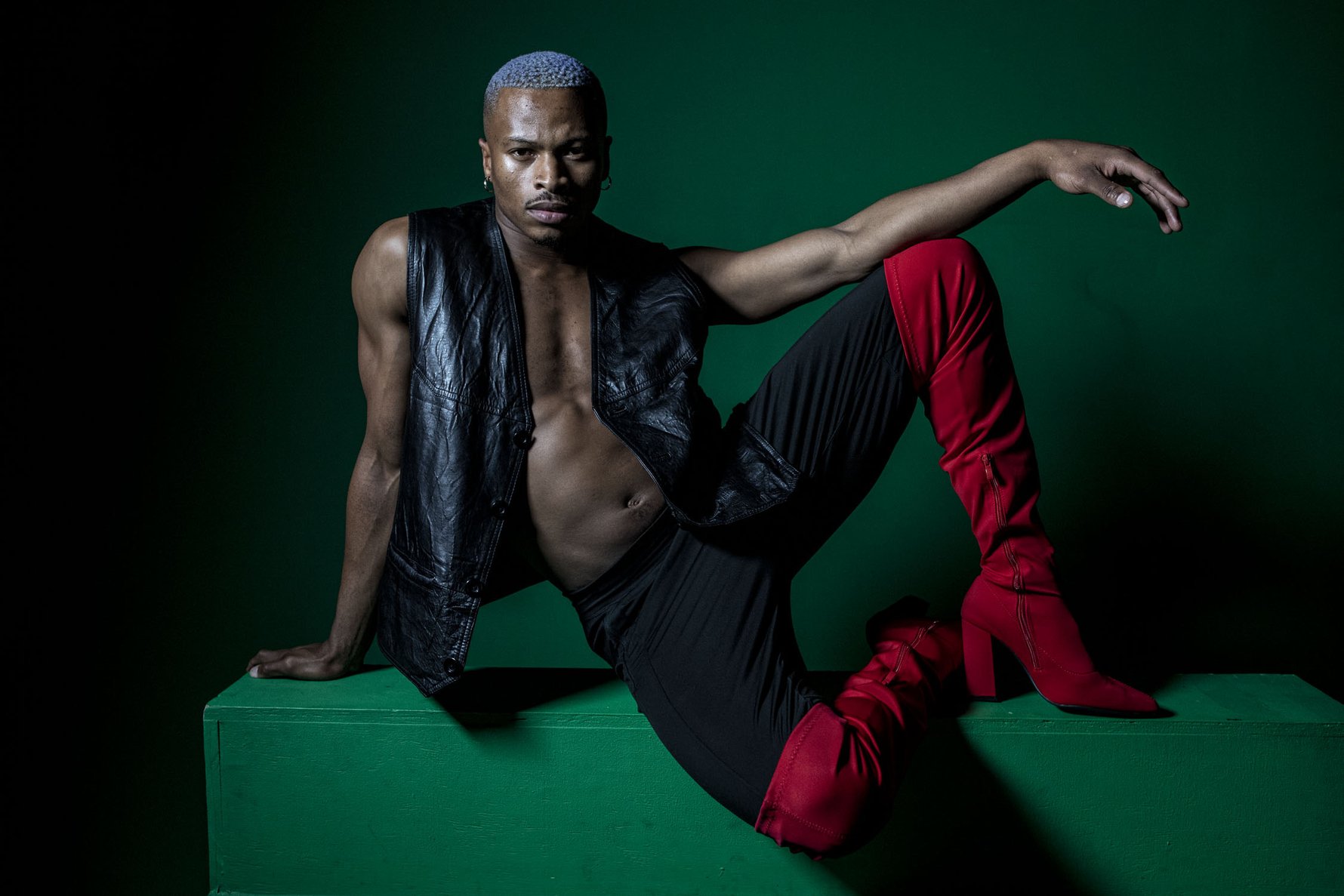
Why did you put vogue at the centre of Nkoli: The Vogue Opera?
The term 'vogue' refers to voguing, which originated as a sort of dance and performance art form in Harlem in the 1980s. It came out of the black queer community in America where, when members of this community were being thrown out of their homes, they formed smaller communities which they called 'houses', like the House of Gucci. They would look after each other and have competitive drag balls using the voguing dance form, which involves categories of different themes. So you could wear a Marie Antoinette dress for the French Revolution or you do a dynasty category where you would wear big shoulder-padded jackets.
It was a form of empowerment, using imagination as a tool to empower young people and to take them out of very difficult circumstances and tough, brutal places they had often been exposed to. Voguing also involves a particular kind of music; Beyoncé uses voguing in her latest albums. Voguing is interesting because it relates to Simon's own love of disco; although voguing isn't exactly disco, it's a type of club music and I thought was a really interesting, contemporary take on the whole disco scene that Simon was in.
Using a Vogue Night stage is an immense challenge in a theatre – how have you resolved this?
In some ways, the stage is fairly simple because you are working with your normal fashion runway. Of course, we have other kinds of props and lighting. What we didn't want was for it to be in a very conventional theatre or opera set-up with a proscenium arch. We were much happier with it being something that you would find if you went to a dance club or a fashion show.
The flamboyance of vogue from America and Europe with an African twist. What can audiences look forward to in terms of hair, make-up, clothing, music and dance style?
It's really exciting in terms of the collaboration. We're working with an amazing fashion stylist and hair designer Mr Allofit (@mr.allofit) who has created some of the most interesting designs for the costumes and the whole look and feel. The dance style very much incorporates a mash-up of the kinds of vogue dance music from Todrick Hall to Beyoncé and the lesser-known stuff. It's mashing up disco in that as well and, of course, there's protest songs. So it's an eclectic collision of different music.
Why opera?
I call it an opera not because it necessarily is an opera; it is not conventionally an opera. It is mostly sung through, but we also use a fantastic sound archive which is lip-synced and refers to drag clubs. If there's an old recording of Simon speaking at a protest rally, someone will lip-sync this, in a particular moment. So we're playing a lot with different genres and, by putting the word 'vogue' next to 'opera', it really sort of turns the notion of opera upside down.
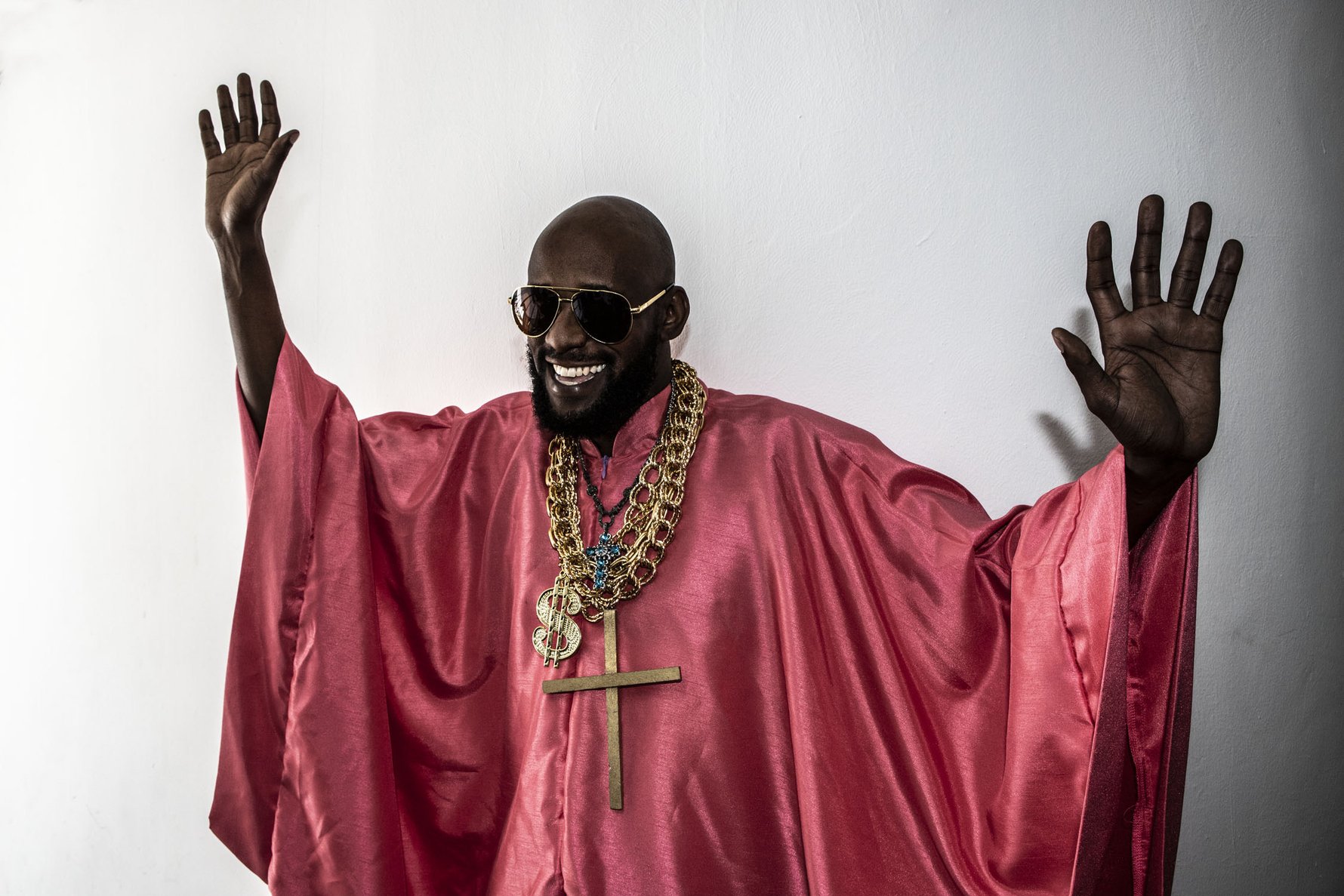
Don’t Flap Your Wrists might become a queer anthem. Can you talk to us a bit about how you approached the lyrics of this song?
This song was about the toyi-toyi and the raising of fists as a universal sign of protest all over the world. Protest actions like these have a strong, masculine energy, and in some ways, I wanted to break that stereotype. Simon was a member of the Congress of South African Students; there was a confrontation where many of the students were not comfortable with him being regional secretary of his branch in the Vaal, and there was a lot of homophobia that he was confronted with. I thought about what an iconic image of protest would be, and then, how do you reverse that or go up against that? The notion of flapping wrists and the 'lispy' speech that is sometimes stereotypical of 'a gay', of 'a moffie', had a choreographic element in the gesture, but it also stuck out to me in terms of the toyi-toyi with the a luta continua where you raise your fists but then there's the flopping of them, too.
Can you share more about the musical collaboration that might seem like opposing sounds at first: mashing up disco beats with arias, and protest songs with added lip-syncing moments.
I was introduced to S'bo Gyre by the researcher and activist Welcome Lishivha, and I was told to listen to his music. I followed him on Instagram and we started to talk, initially about another project, When we finally met I saw how exciting he was as an artist-rapper himself and we clicked. What was interesting was that we both discovered we could work together, even though we're from quite different musical backgrounds. We started to enjoy collaborative improvisations where Gyre would start a rap, I would finish it, find phrases, and together we would have a lot of fun coming up with rhythms and understanding the way the stress of words fall with beats. It was fantastic learning that.
How did you manage to get in touch with Rikki Beadle Blair to direct the show, no doubt an invaluable addition to the Nkoli team having hosted and directed voguing balls in the UK for over 20 years.
The filmmaker and producer Robyn Slovo in London is a friend and colleague of mine. I wrote to her saying I was looking for a director who could respond to the show in terms of the subject matter, who was black, queer, had a different sensibility to a conventional opera director, and who understood choreography and dance. Robyn came up with Rikki's name; she had worked with him before. Absolutely extraordinary person, both in terms of his own work as a screenwriter on the television series Noah's Ark, as well as the Stonewall movie. And of course, an enormously important activist and someone who inspires young black and queer kids from the UK.
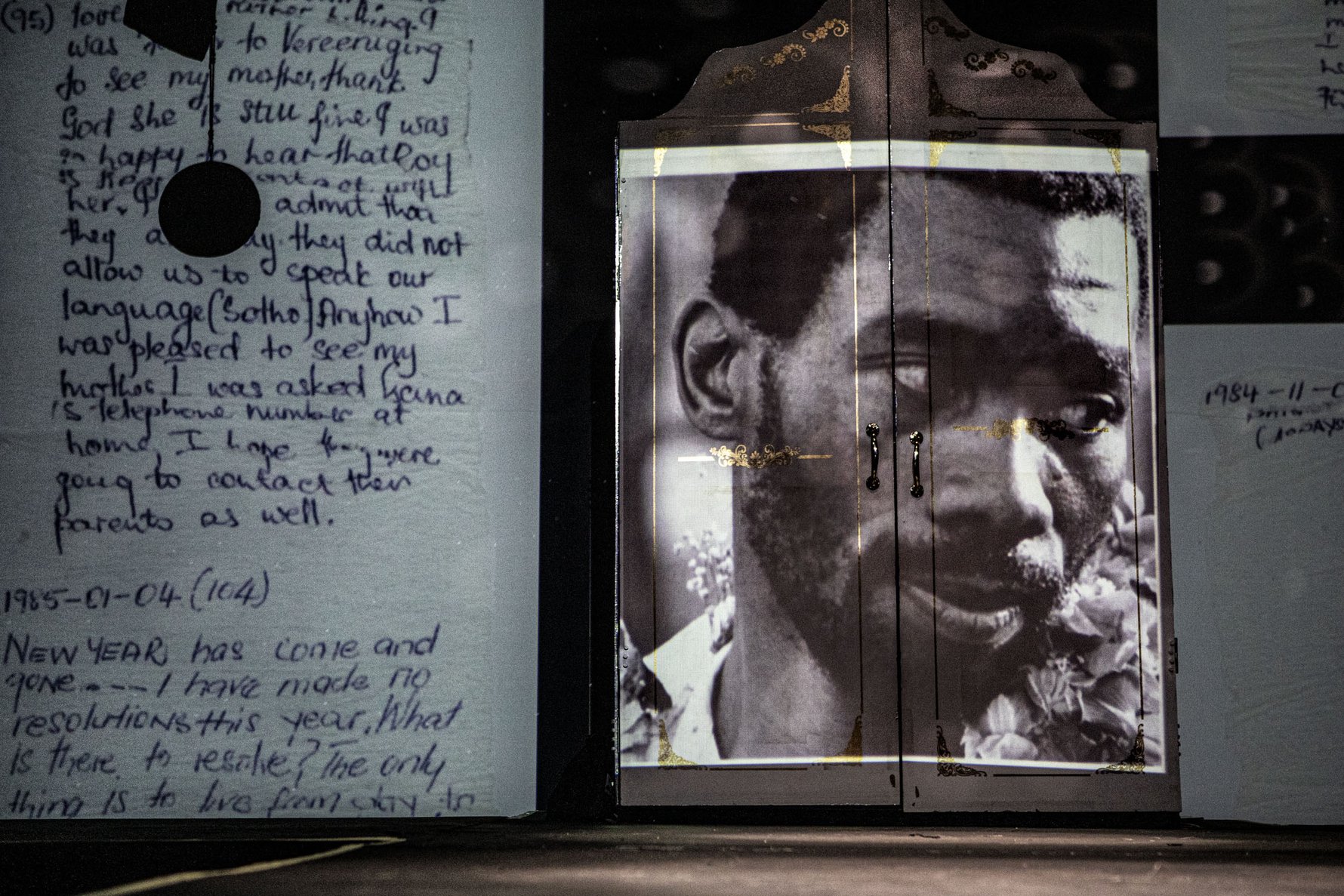
What were the challenges of working on this project through the Covid years?
It was very tough, partly for funding reasons. Obviously at the time of trying to raise funds most NGOs and foundations that we were approaching were focusing on the impact of Covid-19, which was ravaging the world. Culture is not normally the kind of place in which funding goes to, in times of need like that.
Looking at Dr Ditsie’s comment on Nkoli not taking lesbian issues seriously, what made you want to bring this conversation to Nkoli: The Vogue Opera?
We were very clear in bringing this into the conversation because when talking and consulting with Dr Bev Ditsie, we spoke a lot about her feelings around Simon and the times when they struggled with each other in terms of their own friendship and comradeship. Because to some extent, Simon wasn't taking women's issues and lesbian issues really seriously, and was seeing some kind of division or exclusivity around those things. I think there are many reasons for it, again, a very complex thing. But at that time I think Simon was getting a lot of media attention, partly because of his personality. Also, I think if one looks at Simon's own growth, and anyone's growth, he perhaps did not see that it's not just that issues of racism and homophobia should be treated as one, but of course, we talk now about intersectionality, and perhaps with things like women's issues, he hadn't made that connection at that time. Perhaps he would think very differently now.
With the Bertha Artivism Awards backing this production, Nkoli: The Vogue Opera clearly aims to instigate measurable change in a community. What is your greatest hope for its impact?
We've had an amazing social media campaign. We’ve also had the support of Rand Merchant Bank – they put up a small pop-up exhibition about Simon's life using photographs [by Mark Lewis] and videos from our workshops. We are finding measurable change in terms of the awareness of Simon Nkoli, and our social media person has done amazing research into how far the story of Simon has made an impact, whether it's on TikTok or Instagram, so we are helping create a digital community of sorts that can learn about Simon Nkoli.
Why is it important to tell this story to the LQBT+ community, and everyone else, for that matter?
There are two reasons. It's important to tell the story because Simon Nkoli is still largely unknown, his story is largely still in the archives. Often when you ask young, queer people who Simon Nkoli is they have no idea what a legacy he's given us. As Judge Edwin Cameron has always said, without Simon Nkoli we probably would never have the rights of sexual orientation in our constitution, which we now have. The other reason to tell his story is that we have to celebrate unsung heroes, and certainly, this opera does that.
Get tickets for this highly anticipated production, which runs from Fri, Nov 17 – Sun, Nov 19 at the Market Theatre here.




Comments